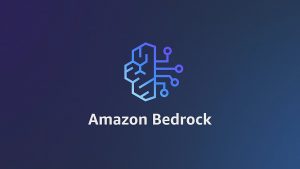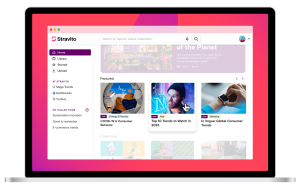The Need for AI Behind Google’s Search Engine Overhaul
![]() How often do you spend countless hours in front of your computer looking for answers on Google? Yeah, I’m always told that Google is my friend and if I need to look for anything and everything, Google will always have the answer. But does it really have the answer? When you search something on Google, you’ll be given links upon links of “answers” to your queries, but it doesn’t really provide you with a direct answer – you still have to check which links actually have the answer you are looking for. And seriously, that’s time consuming. So are we just stuck with the blue links Google provides us F-O-R-E-V-E-R? Google says N-O.
How often do you spend countless hours in front of your computer looking for answers on Google? Yeah, I’m always told that Google is my friend and if I need to look for anything and everything, Google will always have the answer. But does it really have the answer? When you search something on Google, you’ll be given links upon links of “answers” to your queries, but it doesn’t really provide you with a direct answer – you still have to check which links actually have the answer you are looking for. And seriously, that’s time consuming. So are we just stuck with the blue links Google provides us F-O-R-E-V-E-R? Google says N-O.
Revamped Google
In the following months, Google will be undergoing some major changes in their search engine. Aside from the blue links we are all so familiar with, they will give more facts and direct answers to queries at the top of the search-results page.
According to a report from the Wall Street Journal, Google isn’t actually replacing their current keyword-search system, which determines the importance of a website based on the words it contains, how often other sites link to it, and dozens of other measures. Rather, they will be providing more relevant results by incorporating a technology called “semantic search,” which refers to the process of understanding the actual meaning of words.
Amit Singhal, a top Google search executive, stated that Google search will look more like “how humans understand the world.” He also noted that for many searches today, “we cross our fingers and hope there’s a Web page out there with the answer.”
The Change
So what are the changes that will soon take place? For one, Google will be utilizing natural language and as earlier stated, semantic search, meaning it will be able to understand everyday language better. The revamped Google will work like you’re asking your friend a question.
Larry Cornett, former web-search executive at Yahoo! Inc., says that Google is still tinkering with the new look and function of their search engine and it’s unclear whether millions of websites should retool their web page by changing their markup language.
Then there’s Google’s search ads, which appear next to search results and are handled by separate teams inside the company, which could also change. People familair with the matter stated that, “if the search engine better understands the meaning or intent behind people’s search queries, Google could find a way to show them more relevant ads.”
Change Is Inevitable
I know most will be happy with the change but some may be questioning Google on the need for change. That’s simple: if Google wants to maintain it’s status as the top search engine, they have to push forward and make things more user-friendly and give out direct answers.
Take for example Wolfram Alpha, the answer-engine that computes answers from structured data developed by Wolfram Research. They now cater to non-text input searches wherein users can drag images onto the Wolfram Alpha Web page and the service will return image statistics (dimensions, aspect ratio, etc.), image metadata, color information, and a series of image panels.
And we can’t forget about Quora, the question and answer web service, which utilizes its userbase in giving reliable answers to questions. Last year, they launched an iOS app that features the full functionality and content found on their site, loaded with mobile-specific features like a filter for nearby topics, push notifications for new answers to users’ recently asked questions, and more prominent search with brisk autosuggest. An Android app may soon arrive on Google Play as well.
A message from John Furrier, co-founder of SiliconANGLE:
Your vote of support is important to us and it helps us keep the content FREE.
One click below supports our mission to provide free, deep, and relevant content.
Join our community on YouTube
Join the community that includes more than 15,000 #CubeAlumni experts, including Amazon.com CEO Andy Jassy, Dell Technologies founder and CEO Michael Dell, Intel CEO Pat Gelsinger, and many more luminaries and experts.
THANK YOU













